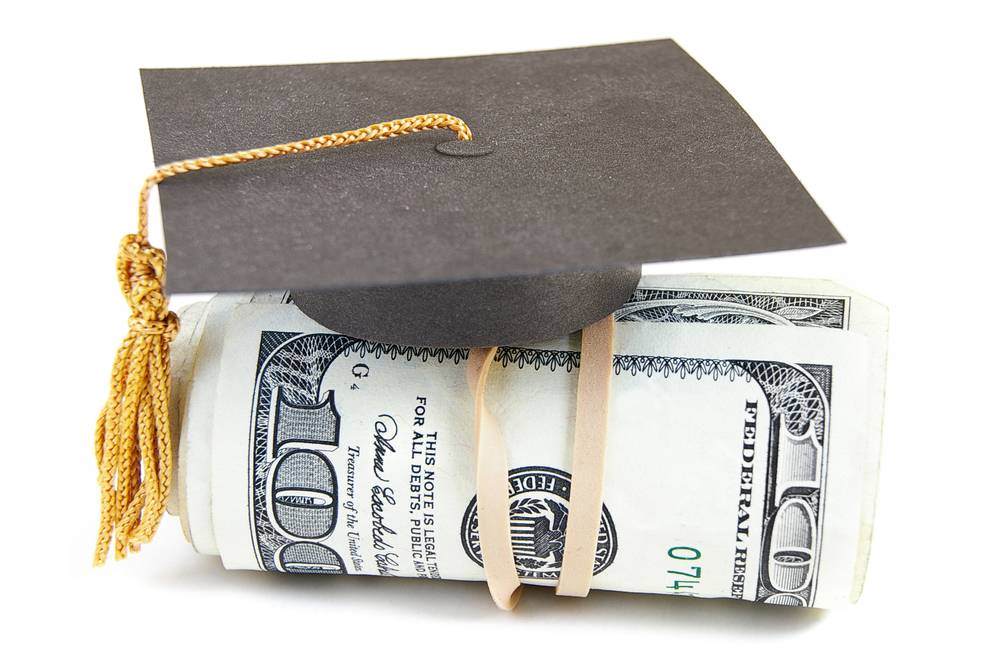Student loan debt can be crippling. Trying to put money towards a house or a car, as well as paying all of your other bills on top of student loan debt, is often exhausting and can sometimes feel impossible. In America alone, the average student loan debt in 2021 comes to around $1.7 trillion.
It’s no surprise then that thousands of individuals with student loan debt end up turning to bankruptcy for help. Though filing for bankruptcy may seem scary, there are many ways that it can help those drowning in debt get back on track. Though every situation is different, contacting an attorney that specializes in bankruptcy can be the first step in achieving financial freedom.
Will My Student Loans Be Discharged if I File for Chapter 13 Bankruptcy?
The short and typical response is, “no.” However, don’t let that dissuade you. While getting student loans fully discharged through bankruptcy is rare, it is not impossible. And, even if you can’t get them fully discharged, you can still use bankruptcy to reduce your payments.
In order to have your loans discharged, you would need to prove that you are experiencing undue hardship — and while you might feel like that describes your situation, convincing the courts of this is a difficult process. Your attorney will know the ins and outs of the law in your area and work with you to have your loans discharged to the best of their ability. If a full discharge is denied, there are still many ways that you can benefit from filing for Chapter 13 bankruptcy.
How Does Student Loans Bankruptcy Work?
Filing for Chapter 13 bankruptcy is the best route when you don’t want to end up losing the property you own, like your home, in the process. With Chapter 13, available disposable income is used to repay all or part of the debt, typically over the course of 3 to 5 years. You and your counsel propose a plan based on the requirements of the bankruptcy law and ask the court to approve it. A trustee will be assigned to your case to collect payments and make recommendations to the court regarding plan approval.
What Are the Benefits of Filing for Chapter 13 Bankruptcy?
While filing for bankruptcy can be a long and challenging process, it is often the only way to have your student loan payments lowered to an amount that you can afford. Additionally, while a full discharge isn’t guaranteed, it is still possible in some circumstances. Below is a rundown of what you can expect to happen when filing, which can help you manage your student loans:
- Stops Lender Harassment: When you file for Chapter 13 bankruptcy, something called “an automatic stay” goes into effect. This stay prohibits creditors, including your student loan lenders, from contacting you to collect any debts. Harassing phone calls often causes undue stress, and having them stop can be a huge weight lifted off of your shoulders.
- Can delay payments: Depending on the plan that is decided upon, you may be able to avoid making student loan payments altogether during the course of your bankruptcy. However, keep in mind that once the bankruptcy period ends, you will likely still be required to pay off any remaining debts. Your student loans will also still accrue interest during this time. The upside is that this delay can give you time to work on your other debts while you increase your income.
- Reduces payment amounts: Amounts paid to your student loans and other unsecured creditors will often be significantly lower through a Chapter 13 bankruptcy. The amount that unsecured creditors receive depends on the requirements of your repayment plan, but as your student loans receive a pro-rata share, it will typically mean a payment amount that is much lower than what your lenders and student loan collectors are requiring.
How Sawin & Shea LLC Can Help
We understand the stress of trying to manage student loan debt, as well as how scary it can be to consider filing for bankruptcy. At Sawin & Shea, we believe in providing compassionate and understanding representation to all of our clients. Our attorneys specialize in bankruptcy cases and are here to help you through the process every step of the way.
Contact us at 317-759-1483 or send us an email for a free consultation today!



